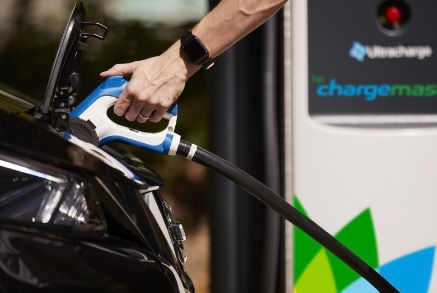One-in-three (28%) car buyers are looking for a plug-in hybrid option with 42% of millenials pledging to ‘go green’ by 2020, according to a carwow study of 2,034 motorists.
Despite the continuous rise in interest from drivers, in the past 12 months only 5,021 publicly available charging points have been added to the network, however, taking the total to a mere 17,729 charging points across the UK.
Consequently, the country is still unprepared to cope with the anticipated demand from the 4.4 million extra car owners looking to go green, according to carwow.
The number one barrier for UK drivers is still the lack of charging points (67%), followed by the price (60%) and ‘range anxiety’ (55%).
The research revealed that Manchester had the top amount of residents (19%) looking to buy electric by 2020, with London in a close second (17%), however the North West has only 1, 256 charge points while London has less than 4,000.
Carwow’s chief operating officer, Andrew Hooks, said: “As an industry barometer, dealing with more than 6,500 enquiries per month, we’ve seen the demand for electric and plug-in hybrid increase significantly across the UK’s major cities, as consumers are becoming more aware of green alternatives in everyday life.
“However, if we fail to plan for the infrastructure required, drivers will be further discouraged from adopting more eco-friendly models, when in reality the time is right to capitalise on public appetite.
"A joined up approach from the motoring industry and local and central government is crucial in making it easy to own and run an electric car.”
Hooks said that the "fear factor around traditional fuel is passing", however. He added: "The uncertainty has been powered by a lack of Government clarity and for the past three months, interest in diesel has been steady accounting for a third of total enquiries and a quarter of purchases.”
By 2020 every existing charging point in London will have to serve an additional 166 vehicles, spending 664 hours charging cars, daily.
Similarly in the North West the region’s charging points will be required to serve an anticipated additional 490 eco-friendly electric cars each.
Asked if they think diesel models will disappear from the roads entirely, 10 % said no, whilst one in 10 drivers admit their next car is likely to be a diesel, regardless of impending deadlines. A further quarter believe that alternatively-fuelled vehicles will not become commonplace in their lifetime.
The research also revealed attitudes towards Government pressure to make the switch away from traditional fuels, with the introduction of increased taxes and a 2040 deadline, but nine in ten of those surveyed felt that, instead of deterring people from traditional fuel, they should be taking further steps to help drivers into lesser polluting vehicles.
Hooks said: “If the Government is serious about enabling drivers to ‘go green’ then they need to take positive action. Urgent action is required from our government, to invest in the infrastructure needed to allow Britain to embrace the electric revolution.”
Carwow said that 28% of survey respondents highlighted that existing Government grants to encourage the switch are not attractive enough to make the investment worthwhile.
Top five greenest cities
Percentage of residents looking to buy electric by 2020
- Manchester (19%)
- London (17%)
- Cardiff (17%)
- Edinburgh (16%)
- Brighton (15%)
Percentage of residents looking to buy a plug-in hybrid by 2020
- Brighton (36%)
- Glasgow (35%)
- Norwich (34%)
- Belfast (32%)
- London (32%)
Top regions for charging points
- London (3,870 vs 1,485 in 2017)
- Scotland (2,716 vs 1,810 in 2017)
- South East (2,445 vs 1,730 in 2017)
- East of England (1205 vs 767 in 2017)
- South West (1,525 vs 1,034 in 2017)
- North West (1,256 vs 914 in 2017)
- West Midlands (988 vs 769 in 2017)
- Yorkshire and the Humber (913 vs 354 in 2017)
- North East (896 vs 864 in 2017)
- East Midlands (787 vs 484 in 2017)
- Wales (576 vs 395 in 2017)
- Northern Ireland (467 vs 458 in 2017)















Login to comment
Comments
No comments have been made yet.